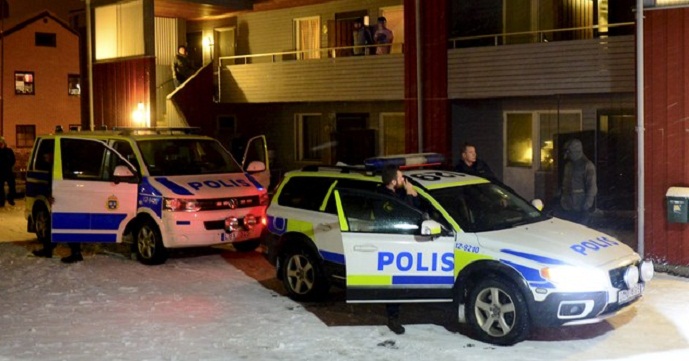Italy and Sweden act against threat of militant attacks

Italy`s foreign minister said possible attacks could be aimed at St. Peter`s Basilica in Rome or the cathedral or La Scala theater in Milan. In Stockholm, police stepped up their presence around the parliament and main railway stations.
Both countries were on a high state of alert to guard against any possible attack.
Rome`s underground train operator temporarily closed lines on three separate occasions during the day due to suspicious packages, which all proved to be false alarms.
Milan`s top city authorities said after a meeting with police officials that there was "no specific evidence of an imminent danger for the city of Milan," but security measures remained at their "maximum level."
In Germany, Bild newspaper reported that a group of attackers had planned to set off multiple explosives in Hanover stadium at Tuesday night`s friendly soccer match between Germany and the Netherlands, and to detonate a bomb in the city center.
Swedish police said they had arrested Mutar Muthanna Majid after distributed a grainy picture of a smiling, bearded young man dressed in dark clothing. Local media said he was arrested at a refugee center but police decline to comment.
Tabloid Expressen said Majid was a member of Islamic State. The news agency TT and newspaper Aftonbladet both quoted anonymous sources as saying he is part of a bigger group of accomplices currently in or on their way to Sweden. A police spokesman would not comment on the report.
Police raised their presence at public and strategic locations around the country, including government buildings, foreign embassies and some media outlets.
Fewer people than normal were using trains and subways in the capital.
"I don`t recognize my Stockholm," Camilla Kvartoft, a news anchor at public television station SVT, tweeted.
The president of Sweden`s council of Jewish communities, Lena Posner Korosi, said evening activities such as sports training for youths were canceled in Stockholm, Gothenburg and Malmo after discussions with police.
Over the last few years, Sweden has participated in NATO missions in Afghanistan and is training Kurdish forces in Iraq, moves that have changed its traditional image of neutrality.
In Rome, Foreign Minister Paolo Gentiloni said security forces were working to identify five people suspected of planning possible attacks.
The U.S. Embassy in Rome said in a message to its citizens that big tourist sites, churches, synagogues, restaurants, theaters and hotels in Italy`s two main cities might be targets.
It urged Americans to be vigilant as militant groups "may possibly utilize similar methods used in the recent Paris attacks". There was no suggestion from authorities that the threat encompassed plans for a specific attack.
Gentiloni said Italy was ready to help its "French brothers" in the fight against Islamic State but rejected the possibility of the Western coalition sending ground troops into Syria.
"No one is going to put boots on the ground in Syria, not (French President Francois) Hollande, nor Obama, nor us," he said.
Like much of Europe, Italy is reluctant to join France and the United States in conducting air strikes over Syria because, without an express request from a government it recognizes, it considers the legal justification uncertain.
GERMANY THREAT
Germany`s Bild said it had obtained a copy of a document by the domestic intelligence service that detailed how attackers planned to set off several explosives in the stadium in Hanover, as well as a bomb in the city center, during Tuesday`s international soccer match. Chancellor Angela Merkel had been due to attend the game, which was called off.
The attackers planned to smuggle the explosives into the stadium in an ambulance, Bild cited the document as saying. After midnight, another attack was planned at Hanover railway station.
Interior Minister Thomas de Maiziere told a news conference: "The indications were so concentrated that calling off the match was unavoidable. Whether the indications were a real threat, or just an indication, we don`t know."
In the event, the authorities said they found no explosives at the stadium.
Meanwhile European Union interior ministers are to agree on Friday to tighten checks at the external borders of the passport-free Schengen area to boost security after the Paris attacks, a draft document seen by Reuters showed.
Ministers will agree to "implement immediately the necessary systematic and coordinated checks at external borders, including on individuals enjoying the right of free movement", the draft conclusions of their meeting says.
The document reflects France`s request to strengthen controls at the external borders of the 26-nation Schengen area, of which most EU countries are members.















































